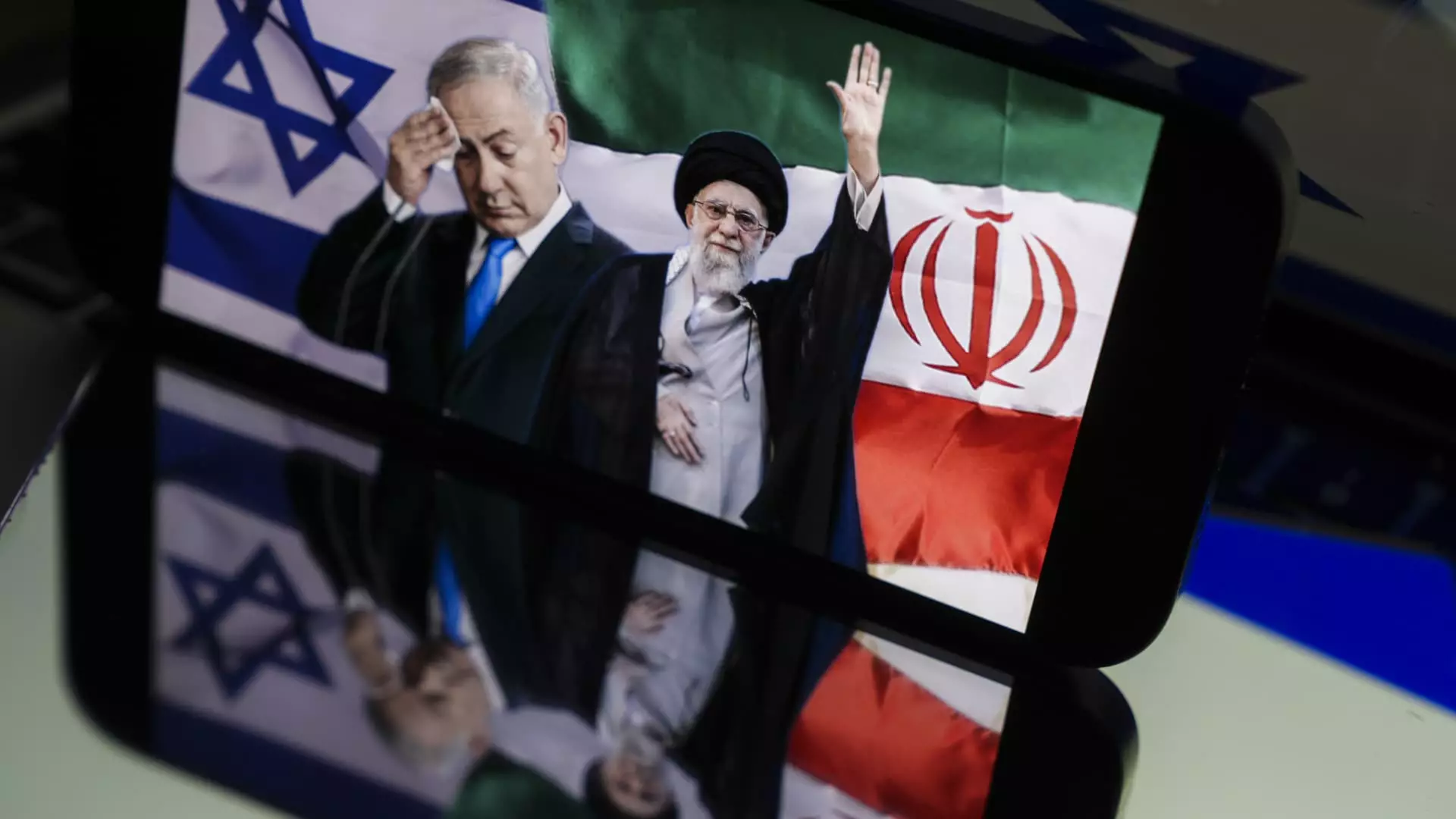The global economy hinges precariously on the stability of oil supplies, yet recent events underscore how volatile this foundation truly is. Iran’s recent confrontations and the broader Middle Eastern conflicts exemplify how geopolitical instability can ripple through energy markets, creating unpredictability that affects everything from prices to national economies. These geopolitical tensions are not mere background noise—they are the thunderstorm lurking at the horizon, waiting to upend the carefully balanced supply and demand dynamics that underpin our energy infrastructure.
The recent flare-up between Iran and Israel, coupled with U.S. military strikes on Iranian nuclear facilities, highlights a sobering truth: the oil industry’s resilience is limited. Crude oil prices surged in response to the conflict, exposing the market’s sensitivity to regional conflicts. However, what is often overlooked is that these disturbances do not just influence immediate prices—they threaten the long-term stability of supply. Iran, holding the position of third-largest producer within OPEC, is especially pivotal. Any disruption here sparks ripple effects across the global energy landscape, risking shortages that can stifle economic growth and inflate costs for consumers worldwide.
Political War as an Invisible Catalyst for Economic Hardship
The logic of geopolitics becomes increasingly intertwined with the economic consequences we are experiencing today. Iran’s criticism of war-led disruptions serves as a stark reminder that political conflicts are often cloaked in rhetoric but wield tangible economic power. War, as a tool of political strategy, introduces uncertainty—an especially perilous commodity in global markets where confidence is currency. When nations resort to military action, they not only jeopardize regional stability but also undermine the trust in the fundamental commodity—oil—that fuels the global economy.
There’s a dissonance here: nations and alliances like OPEC depend on stability and predictability, yet they are caught in the vortex of unresolved conflicts. Iran’s threats and actions, compounded by international sanctions and covert operations, serve as a stark warning that energy security is fundamentally political. The threats to Iranian oil exports—sometimes routed through shadow fleets—are emblematic of a larger narrative where political tensions hijack market fundamentals. It is not an exaggeration to say that every missile launched, every sanction imposed, shrouds the global market in further uncertainty.
The Illusory Promise of Diplomacy and the Perils of Inaction
Diplomacy is often heralded as the panacea for stability, yet the recent history of Iran illustrates a different reality. Negotiations come and go, sanctions tighten and loosen, but the underlying tensions persist. The potential of a renewed nuclear deal or increased sanctions remains a double-edged sword: either a pathway toward stability or a catalyst for further conflict. The recent legislative move by Iran’s parliament to suspend cooperation with the IAEA exemplifies a dangerous slide toward confrontation, signaling that diplomacy may be losing ground to more aggressive postures.
The broader lesson is that inaction or half-measures only serve to prolong the existing peril. The international community’s failure to address Iran’s nuclear ambitions comprehensively risks a future where conflict becomes inevitable—an outcome with devastating consequences for global energy markets. Given the track record, reliance on temporary ceasefires or sanctions alone appears insufficient. Without decisive, sustained diplomacy, geopolitical risk will remain an omnipresent black swan, threatening to destabilize oil supplies precisely when the world is least prepared.
The Economic and Ethical Imperatives for Responsible Policy
Rethinking our approach to such conflicts requires more than economic analysis—it’s a moral imperative. The world cannot afford to treat energy security as a secondary concern while nations pursue narrow strategic interests. The disruption of oil markets due to conflict is not just an economic setback; it jeopardizes jobs, raises costs for consumers, and hampers progress toward a sustainable future.
As a center-wing liberal, I believe that responsible policymaking should emphasize diplomacy over escalation, cooperation over conflict. We must advocate for multilateral engagement, exerting diplomatic pressure while offering genuine pathways for Iran and other regional actors to address their security concerns peacefully. The international community’s approach must evolve from temporary patchwork solutions toward comprehensive strategies that prioritize stability, human welfare, and environmental sustainability. Only through such balanced policies can we hope to shield global markets from the chaos that geopolitical conflicts inevitably sow.

